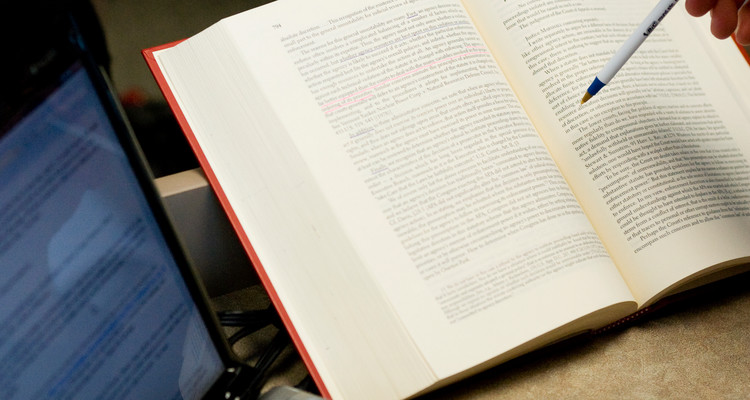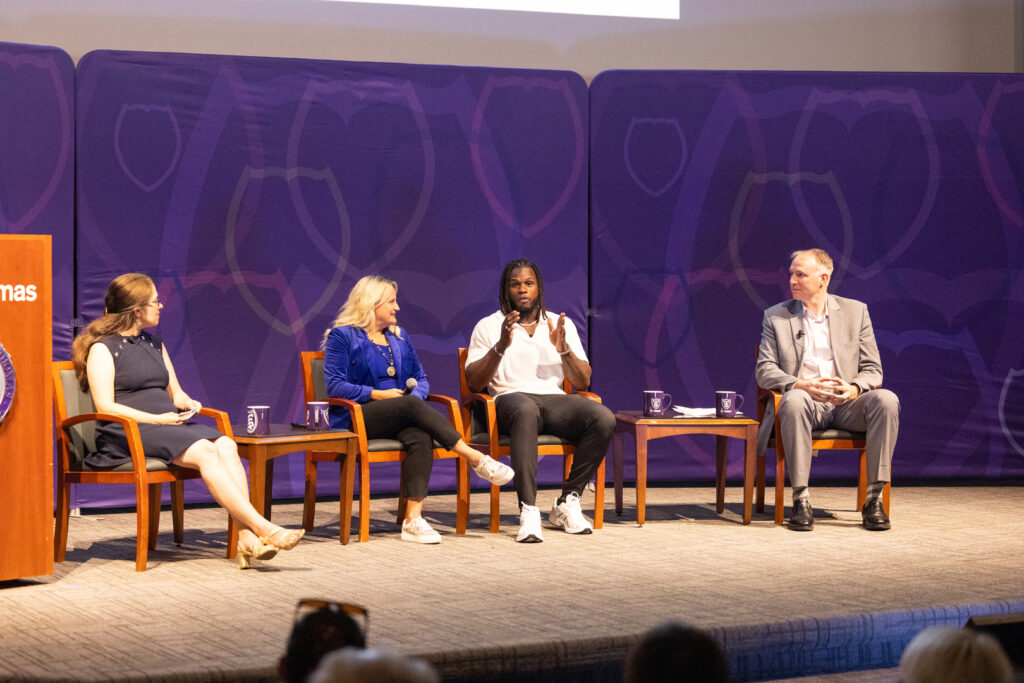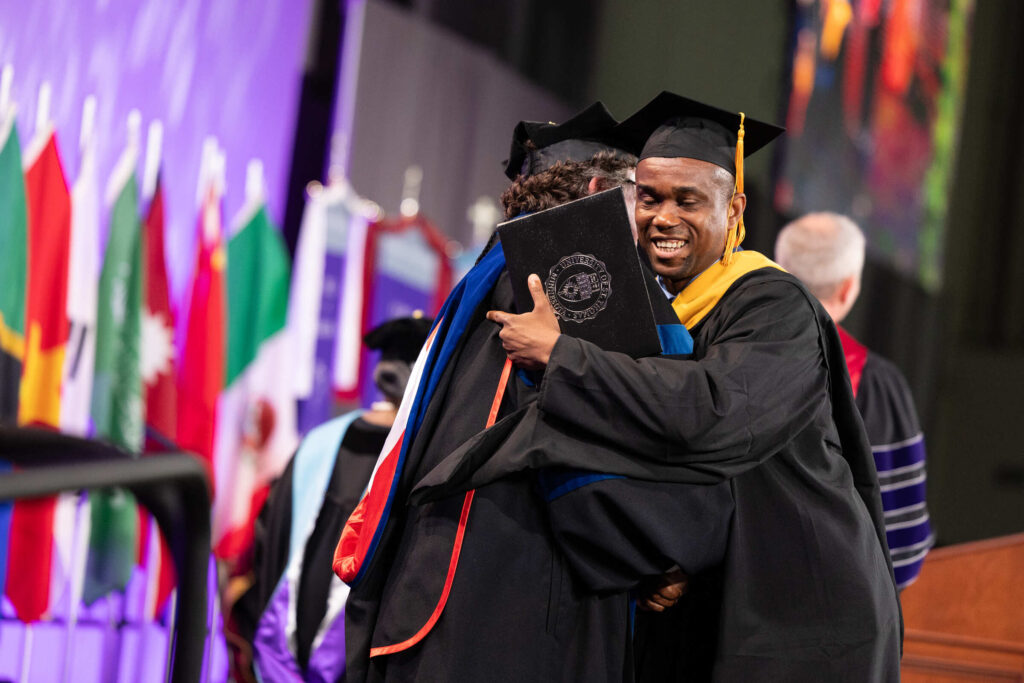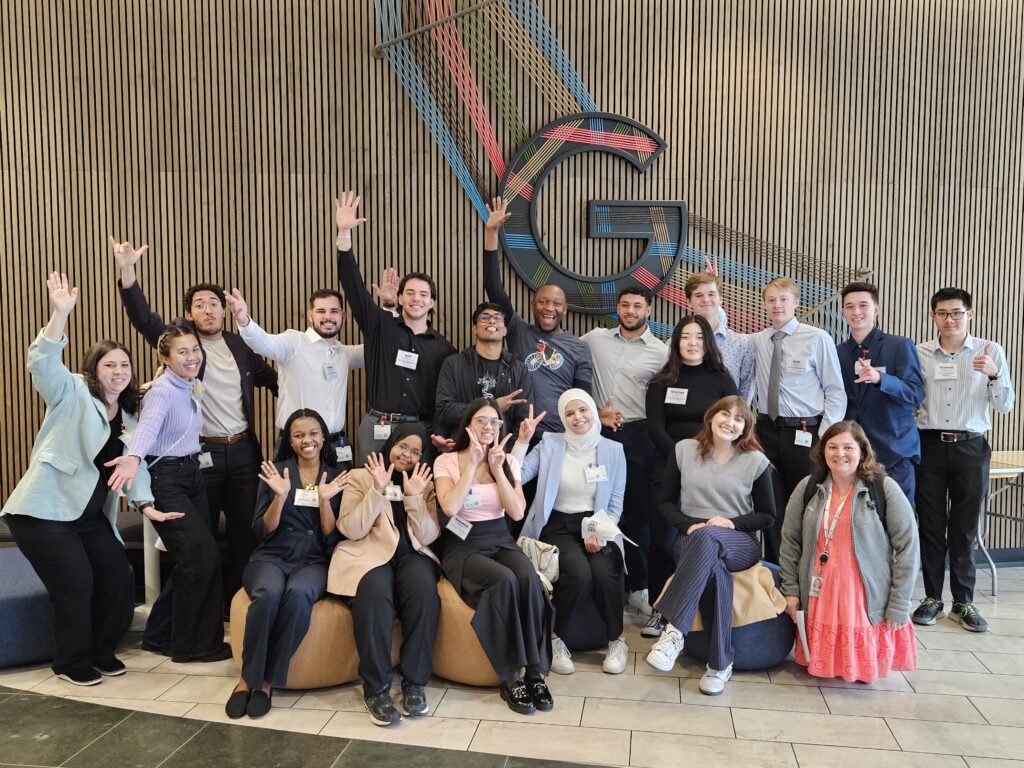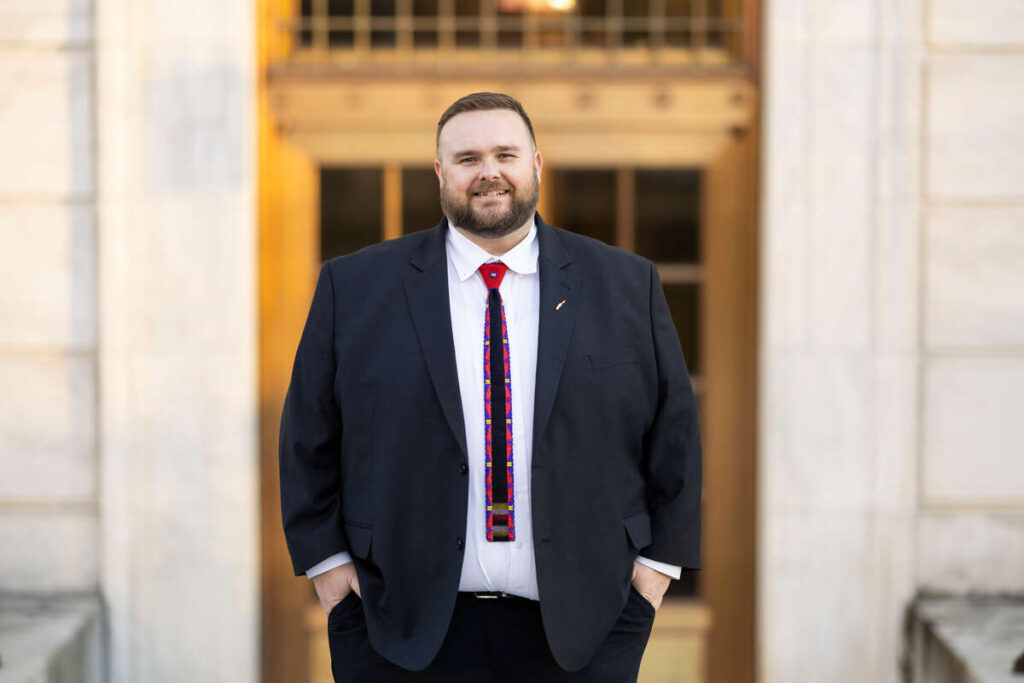There are plenty of expected differences between high school and college for students: time management, increased independence and a heavier workload. When junior Divine Zheng embarked on her college career at St. Thomas, she noticed a difference that was less expected: the way she was being taught the civil rights movement.
“I started learning in class about how my understanding of the civil rights movement wasn’t necessarily reflective of what really happened,” Zheng said. “So, I wanted to know why all those things about Rosa Parks’ activism and [Martin Luther King Jr.’s] advocacy against the war in Vietnam weren’t things that I had learned in school.”
To answer that question, she considered how textbooks are selected and arrive in classrooms across the country. While that’s a broad and commonly discussed topic, Zheng picked at one thread with the help of the Excel! Research Scholars Program: She examined whether states that are rated as having robust and comprehensive content standards in regard to the civil rights movement actually wind up with more comprehensive textbooks.
“[She] turned a desire to change the world, which we hope all of students have, into a plan for how to do that,” said assistant professor of history David Williard, who served as Zheng’s mentor.
Studying textbooks
Zheng, a justice and peace studies major, as well as a history major after completing this research, began her project with the broad question of why high school students across the United States can receive a vastly different interpretation of the civil rights movement. She chose to work through the Excel! Research Scholars Program because it prepares undergraduates who are first-generation college students, military veterans or are of an underrepresented race for graduate school, while also putting them in charge of a meaningful research project.
“She had really big ambitions – and still does – to do a deep investigation of how what people get in those textbooks affects how they see folks, specifically civic engagement,” Williard said. “In other words, how do they view society based on their education about moments of social change like the civil rights movement?”
Zheng read about how textbooks are written and selected across the country, which can often be a contentious topic, and considered what role those textbooks play in the classroom. She discovered a study done in 2014 by the Southern Poverty Law Center’s Teaching the Movement project: The study did an in-depth review of state standards in regard to the civil rights movement and assigned them a grade based on how comprehensive the standards were.
Zheng took that research and looked at whether states deemed as having high-content standards actually wound up with more comprehensive textbooks than states with low-content standards. She compared the textbooks from six states that provided a list of textbooks that had been approved or recommended at the state level: Three of the states had been evaluated by the SPLC as having comprehensive content standards, and three evaluated as having poor or even nonexistent content standards.
Zheng designed a rubric to discern how comprehensive the textbooks were.
“I encouraged her to think about ... a nuanced, robust coverage of King vs. generic coverage of King, and what ‘generic’ means,” Williard said. “I said ... find something concrete in a historical record that you think captures the essence of what you mean by ‘generic’ and something that you think captures the essence of something that’s really nuanced and robust.”
Some categories Zheng considered were how major figures such as King and Parks are depicted, if civic agency is portrayed as a major part of the movement, and, if included, how institutional and social resistance is described.
“Her rubric let her say, ‘What textbooks leave students with a complex movement that was driven from both the government and from people on the ground, and that is dynamic and requires a lot of mobilization?’” Williard said.
Zheng said she expected the state standards to correlate with the kind of textbooks that were adopted. But that wasn’t the case.
“My results demonstrated that no direct correlation could be confirmed between comprehensive content standards and the comprehensiveness of textbooks that are subsequently adopted,” Zheng said. “Textbooks that presented limited narratives of the civil rights movement have been adopted in states that had good content standards, as well in states that had bad content standards; the same could be said about textbooks that presented comprehensive narratives.”
Zheng theorized that while the states set the standards, choosing a range of textbooks might be an effort to appease the local districts.
Advancing equity
Williard said he was highly impressed with Zheng's work, particularly her “tenacity” to get information that fueled her research. He said her results also “complicated” what we assume about how and where the civil rights movement is taught.
“[She was able spend time on] why it might be that a student in Alabama or Mississippi, a state that we think of as educationally not at the top of the heap, is getting a better, more thorough, more rigorous education than a student in New York or New Jersey, which we think of as a more high-achieving state educational system,” Williard said.
Williard and Zheng look forward to continuing to work with this topic, potentially studying the ways a selected textbook might actually be used in a classroom.
“I could have the greatest textbook in the world, but if I don’t do anything with it, if my students don’t read it, it’s not teaching anybody anything,” Williard said.
Zheng presented her research at the end of the summer as part of the Excel! program, as well as at the National Ronald E. McNair Research Conference. She will continue her work with the program to look for other presentation opportunities and preparation for graduate school. Both Zheng and Williard spoke highly of their experience with the Excel! program, and Zheng said she hopes to "see more students benefit from the invaluable training, experience and opportunities it offers." Zheng said she plans to attend law school, and that she liked how her research prepared her for that future.
“I wanted to find concrete ways that would prepare me for a career in which I'd have to constantly defend my arguments and claims – and the Excel! program was immensely helpful in that,” Zheng said. “As a student of a social justice discipline, it’s very important to me that when I continue my education, it is at an institution that allows me to develop my current knowledge and passions with professors who work to advance equity, especially in law and policy.”
